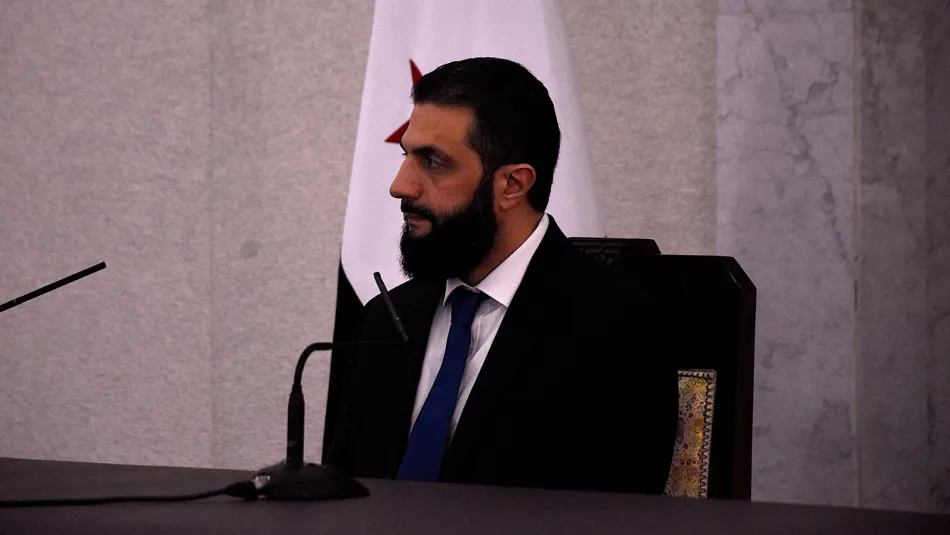Despite repeated denials from Syrian officials regarding any plans for rapprochement with Israel—and clear affirmations that Damascus will never relinquish its claim to the occupied Golan Heights—Israeli media is pushing a starkly different narrative.
According to a recent report in Israel Hayom, which cites unnamed American sources, a peace agreement between Syria and Israel is “within reach,” potentially requiring neither territorial concessions from Israel nor significant political restructuring in Damascus. The article suggests that a deal could materialize “within weeks or a few months.”
While the publication urged caution in interpreting U.S. President Donald Trump’s recent remarks—particularly his claim that Syria is on the verge of joining the Abraham Accords—it acknowledged that even skeptics now admit that quiet diplomatic channels have been opened. “If not a historic breakthrough,” the paper noted, “then at least a surprising and unprecedented dialogue is underway.”
From Pariah to Partner?
The report traces a swift and dramatic shift in how Israel views Syria’s new leadership under President Ahmad al-Sharaa. Initially, Israeli officials greeted Sharaa’s ascent with open hostility. Israeli jets bombed Syrian targets, and government ministers called for a demilitarized zone extending to the outskirts of Damascus. Some even floated backing Syrian Kurds and Druze—support that, notably, was never solicited by those communities.
In this tense climate, Trump reportedly intervened at the urging of two of his closest international allies: Saudi Crown Prince Mohammed bin Salman and Turkish President Recep Tayyip Erdoğan. According to Israel Hayom, Trump embraced Sharaa “warmly,” and in a significant move, lifted all U.S. sanctions on Syria while removing Sharaa’s name from Washington’s terrorist watchlist.
Shared Interests, Shifting Priorities
Trump’s realignment appears rooted in strategic calculus. For Washington—and increasingly for Jerusalem—stability under Sharaa is preferable to the resurgence of Iranian influence in Syria. In this context, Israeli officials have begun to see Sharaa less as a threat and more as a potential interlocutor.
“Syria’s new leadership and Israel now share overlapping interests,” the paper claims. These include regional stability, economic reconstruction, and—crucially—preventing Iran from re-establishing its foothold in post-Assad Syria. For Damascus, the road to international legitimacy and recovery may well pass through Jerusalem.
Has Sharaa Abandoned Jihadism?
The article stops short of declaring a transformation in Sharaa’s ideology but raises the question: “Has Sharaa truly abandoned jihadist thinking?” While the answer remains uncertain, Israeli commentators argue that the political risks of engagement are outweighed by the potential rewards—especially in light of waning hostility toward Israel among ordinary Syrians.
Once perceived as the archenemy, Israel is no longer the primary focus of public anger in Syria. According to Israel Hayom, that mantle has now been taken up by Iran, widely blamed for its role in the bloodshed of Syria’s civil war.
The Golan Question
As for the Golan Heights, the article claims that while Sharaa hails from the region—earning him the moniker “al-Joulani”—he does not bear the same emotional attachment to the territory as former President Hafez al-Assad, who lost it to Israel in 1967. With Trump having already recognized Israeli sovereignty over the Golan, the newspaper suggests that this thorny issue may no longer be a red line in future negotiations.
A Long Road Ahead
Despite these developments, the article acknowledges that Syria remains unstable and that Sharaa’s grip on power is far from secure. The road to Arab-Israeli normalization is still fraught with political landmines. Nevertheless, Israel Hayom concludes, “we are closer to peace with Syria than we’ve ever been—even if we won’t be eating hummus in Damascus any time soon.”


